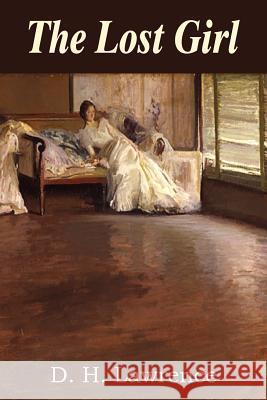The Lost Girl » książka
The Lost Girl
ISBN-13: 9781612039374 / Angielski / Miękka / 2012 / 288 str.
The Lost Girl
ISBN-13: 9781612039374 / Angielski / Miękka / 2012 / 288 str.
(netto: 73,94 VAT: 5%)
Najniższa cena z 30 dni: 76,58
ok. 16-18 dni roboczych.
Darmowa dostawa!
The Lost Girl is a novel by D. H. Lawrence awarded the 1920 James Tait Black Memorial Prize in the fiction category. The Lost Girl tells the story of Alvina Houghton, the daughter of a widowed Midlands draper, comes of age just as her father's business is failing. In a desperate attempt to regain his fortune and secure his daughter's proper upbringing, James Houghton buys a theater. Among the traveling performers he employs is Ciccio, a sensual Italian who immediately captures Alvina's attention. Fleeing with him to Naples, she leaves her safe world behind and enters one of sexual awakening, desire, and fleeting freedom. D. H. Lawrence was an English novelist, poet, playwright, essayist, literary critic and painter whose works represent a reflection upon the dehumanizing effects of modernity and industrialization. In his writings Lawrence confronts issues relating to emotional health and vitality, spontaneity, and instinct often apposing current social acceptance. E. M. Forster, in an obituary notice, described him as "the greatest imaginative novelist of our generation."
The Lost Girl is a novel by D. H. Lawrence awarded the 1920 James Tait Black Memorial Prize in the fiction category.The Lost Girl tells the story of Alvina Houghton, the daughter of a widowed Midlands draper, comes of age just as her fathers business is failing. In a desperate attempt to regain his fortune and secure his daughters proper upbringing, James Houghton buys a theater. Among the traveling performers he employs is Ciccio, a sensual Italian who immediately captures Alvinas attention. Fleeing with him to Naples, she leaves her safe world behind and enters one of sexual awakening, desire, and fleeting freedom.D. H. Lawrence was an English novelist, poet, playwright, essayist, literary critic and painter whose works represent a reflection upon the dehumanizing effects of modernity and industrialization. In his writings Lawrence confronts issues relating to emotional health and vitality, spontaneity, and instinct often apposing current social acceptance. E. M. Forster, in an obituary notice, described him as "the greatest imaginative novelist of our generation."











